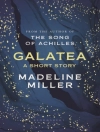In ‘The Rose and the Ring, ‘ William Makepeace Thackeray employs a rich tapestry of satire, humor, and fairy tale conventions to craft a narrative that critiques societal norms and human folly. Set in a whimsical kingdom, the story unfolds around the lives of two princes and their intertwined fates, driven by the quests for love, honor, and magic. Thackeray’s literary flair is evident in his adept use of lively characterizations and witty dialogues, as he draws inspiration from both the traditions of fairy tales and the moral complexities of Victorian society. This unique blend of storytelling serves to illuminate the paradoxes of human ambition and desire, while enchantingly engaging readers from start to finish. Thackeray, a prominent figure of Victorian literature, is best known for his incisive social commentary and his keen insight into human behavior, often reflecting his own experiences of class and privilege. The author’s extensive travels and encounters with diverse cultures greatly influenced his writing, allowing him to weave intricate narratives that resonate with universal themes. ‘The Rose and the Ring’ was conceived during a period when Thackeray straddled the lines of both childhood innocence and adult insight, showcasing his versatility as both a satirist and storyteller. This enchanting tale is a must-read for anyone intrigued by the intricacies of human nature and the societal structures of the time. ‘The Rose and the Ring’ transcends mere fairy tale; it is an insightful reflection on the human condition, masterfully wrapped in the guise of a playful narrative. Thackeray’s exquisite prose and profound themes make this work a timeless exploration of love, ambition, and the human spirit.
About the author
William Makepeace Thackeray, born in Calcutta, British India, on July 18, 1811, was a renowned English novelist of the 19th century known for his satirical works that rendered a detailed, often sardonic, portrayal of English society. A leading author of the Victorian era, Thackeray studied at Cambridge but left without a degree, turning to journalism and literature. He authored numerous novels, the most celebrated being ‘Vanity Fair’ (1847-1848), which remains a classic in English literature, epitomizing his sharp wit and narrative skill. ‘The Rose and the Ring’ (1855), a whimsical yet satirical fantasy, exemplifies Thackeray’s penchant for comic-opera style burlesques, which both amuse and criticize human follies through fantasy elements. In this work, Thackeray indulges in playful mock-heroic tropes and the moral implications of power and vanity—a common theme across his larger body of work. His literary style combines conversational prose with a pervasive ironic tone, frequently addressing the reader directly. Despite his humor, Thackeray’s descriptive capabilities also evoke sincere sentimentality and emotional depth. Thackeray’s influence extends beyond his novels, as he contributed to the satirical magazine ‘Punch’ and worked as an editor for the ‘Cornhill Magazine’. He died on December 24, 1863, leaving behind a legacy as a master of prose and a keen observer of the ironies of human nature.












